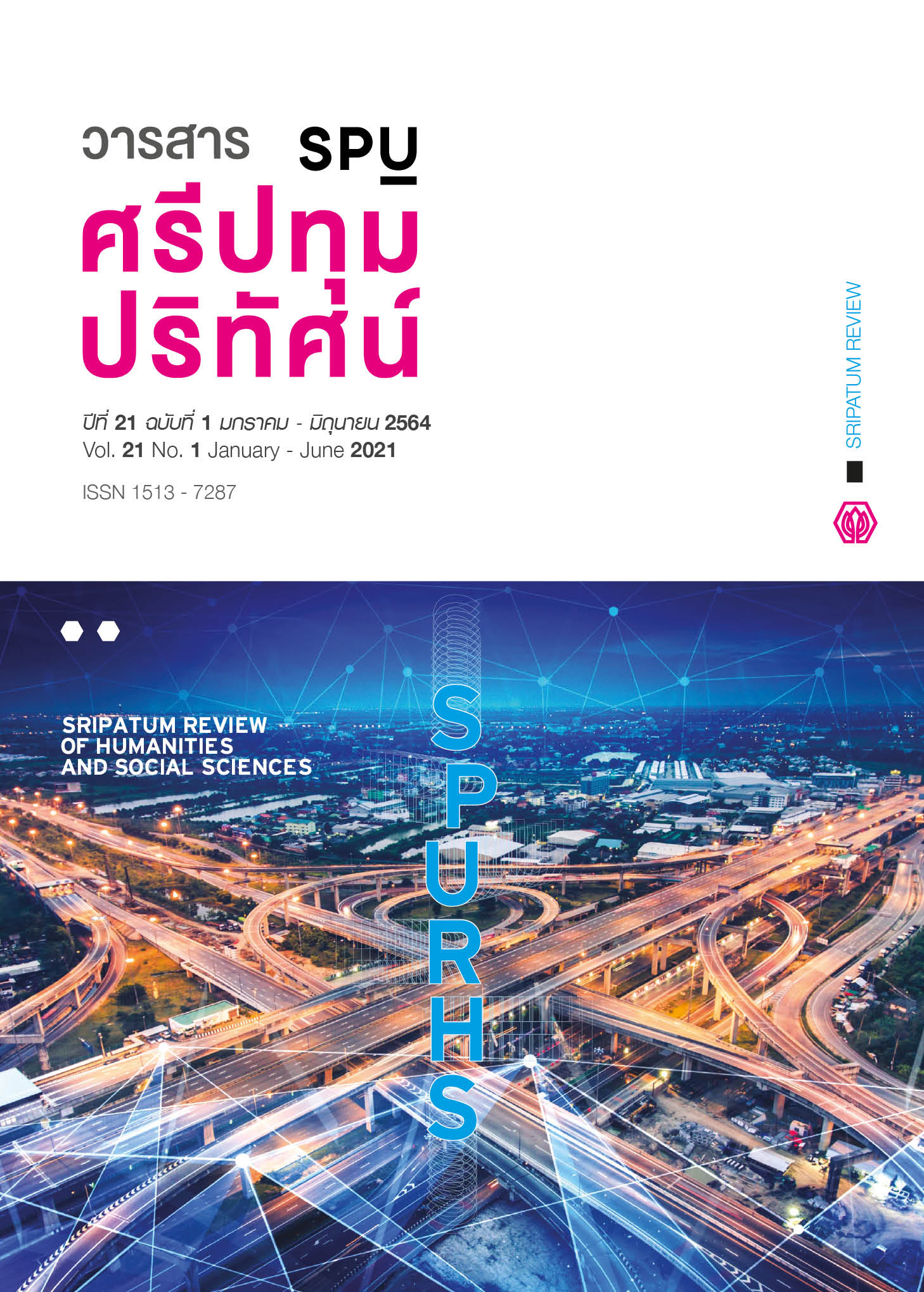Knowledge, Attitude and Behavior in Applying Sufficiency Economy Philosophy to Economy: A Case Study of Chitralada Technology Institute Students
Main Article Content
Abstract
The objectives of this research were to study (1) the knowledge, attitude and behavior in applying the sufficiency economy philosophy to economy, (2) the relationship between knowledge, attitude and behavior in applying sufficiency economy philosophy to economy, and (3) the effects of personal factors on knowledge, attitude and behavior in applying the sufficiency economy philosophy to economy of Chitralada Technology Institute students. The research sample consisted of 219 students of Chitralada Technology Institute. The research instrument was a questionnaire. Statistics employed for data analysis were the frequency, percentage, mean, and correlation coefficient. Research findings revealed that (1) Most members of the research sample have knowledge of the sufficiency economy philosophy at the high level, have attitude towards the sufficiency economy philosophy at the agreeable level, and have behavior of applying the sufficiency economy philosophy at the “sometimes” frequency in all matters including saving, expense reduction, and revenue increase, respectively, (2) The study of the relationship between knowledge, attitude, and behavior in applying sufficiency economy philosophy to economy reveals that attitude is significantly correlated with saving behavior, and (3) The results from hypothesis testing reveal that monthly income, occupation of the father, and occupation of the mother significantly affect the behavior in applying the sufficiency economy philosophy in terms of the reduction of the expense; monthly income also significantly affects the behavior in terms of the increase of the income; and finally, occupation of the father, daily food expense, monthly accommodation expense, and monthly learning media expense significantly affect the behavior in terms of saving. Also, The different monthly incomes, occupations of the father, daily food expenses, and monthly learning media expenses of the students result in the difference of their saving behaviors; and different monthly accommodation expenses of the students also result in the difference of their attitudes towards the sufficiency economy philosophy. All differences are statistically significant.
Article Details
1. กองบรรณาธิการสงวนสิทธิ์ในการพิจารณาและตัดสินการตีพิมพ์บทความในวารสาร
2. บทความทุกเรื่องจะได้รับการตรวจสอบทางวิชาการโดยผู้ทรงคุณวุฒิ แต่ข้อความและเนื้อหาในบทความที่ตีพิมพ์เป็นความรับผิดชอบของผู้เขียนแต่เพียงผู้เดียว มิใช่ความคิดเห็นและความรับผิดชอบของมหาวิทยาลัยศรีปทุม
3. การคัดลอกอ้างอิงต้องดำเนินการตามการปฏิบัติในหมู่นักวิชาการโดยทั่วไป และสอดคล้องกับกฎหมายที่เกี่ยวข้อง
References
Bhiromrat, K. (2010). Lifestyle behaviors according to the sufficiency economy philosophy of students Rajabhat University in Bangkok. Bangkok: Suan Sunandha Rajabhat University. (in Thai)
Chutiwisuit, P. (2009). Measuring knowledge and applying sufficiency economy philosophy to Arrange teaching at the bachelor degree level Krirk University. Bangkok: Krirk University. (in Thai)
Karunapen, S. (2017). Factors Affecting Savings Level and Savings Behaviour Gen Y. Independent Study of the Degree of Master of Business Administration. Bangkok: Thammasart University. (in Thai)
Komenjumrus, P. (2017). The Relationship between Knowledge Level of Sufficiency Economy and Practice Level of Sufficiency Economy in Song Klong Sub District Community, Bangpakong District, Chachoengsao Province. Bangkok: Sripatum University. (in Thai)
Nongyai, N. (2017). Saving Behaviour among people living in Pattaya city, Chonburi province. Independent Study of the Degree of Master of Public Administration. Chonburi: Burapha University. (in Thai)
Office of the National Economic and Social Development Board. (2016). The National Economic and Social Development Plan (2017-2021). [Online]. Retrieved February 19, 2017, from: http://www.ratchakitcha.soc.go.th/DATA/PDF/2016/A/115/1.PDF.
Phuengpunum, S. (2013). Sufficiency Economy Philosophy and Lifestyle: Case Study: Undergraduate Students College of Management and Management King Mongkut's Institute of Technology Ladkrabang. Bangkok: King Mongkut's Institute of Technology Ladkrabang. (in Thai)
Saravirot, P. (2010). Expenditure behaviors of students obtaining studen loan fund at Prince of Songkla University, Hat Yai campus. Thesis of the Degree of Master of Arts in Human and Social Development Program. Songkla: Prince of Songkla University. (in Thai)
Somasri, P. (2013). Study of life of undergraduate students Srinakharinwirot University. Thesis of the Degree of Master of Higher Education. Bangkok: Srinakharinwirot University. (in Thai)
Tekhanmag, K. (2013). Factors Related to Life Styles by Sufficiency Economy Philosophy of Students of Phranakhon Si Ayutthaya Rajabhat University. Phranakhon Si Ayutthaya: Phranakhon Si Ayutthaya Rajabhat University. (in Thai)


